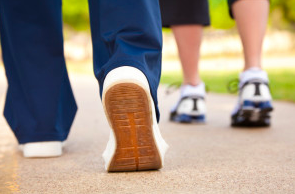Older adults who live in walkable neighborhoods stay in better shape, physically and mentally, than those who live in car-dependent areas, according to a new study.

In a study presented last weekend to the Gerontological Society of America, University of Kansas assistant professor Amber Watts examined 26 subjects with mild Alzheimer's Disease and 30 healthy control subjects. She tracked health outcomes over two years, controlling for home price, income, gender, and education.
Watts found that subjects living in walkable neighborhoods, from both groups, had lower body mass index, healthier metabolisms, and better memory and cognition. This was particularly true in neighborhoods that had complicated paths to destinations, she found.
“There seems to be a component of a person’s mental representation of the spatial environment, for example, the ability to picture the streets like a mental map,” Watts said in a press release. “Complex environments may require more complex mental processes to navigate. Our findings suggest that people with neighborhoods that require more mental complexity actually experience less decline in their mental functioning over time.”
Older adults are less likely to get regular exercise than the general population, but walking is one form of activity that is considered safe and healthy for people with Alzheimer's. Neighborhood attributes like good sidewalks, generous crossing time at intersections, benches, and closely spaced parks and destinations can help encourage older people to walk for transportation, Watts said.





